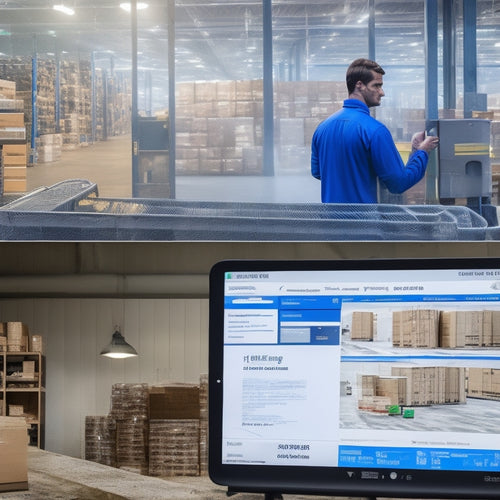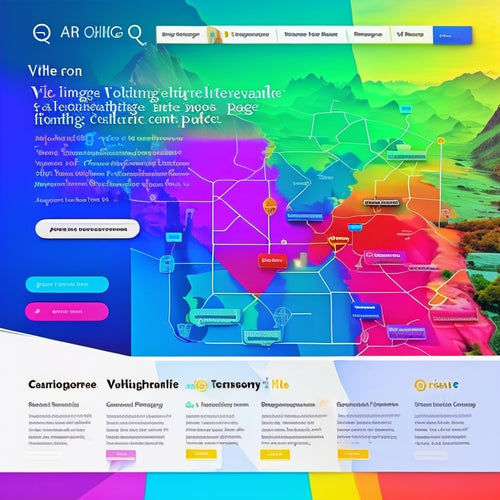
What Drives Customer Loyalty in Ecommerce?
Share
You're likely to retain customers when you meet their expectations, like seamless experiences, easy navigation, and hassle-free returns. Building trust and credibility through data security, social proof, and clear return policies is also vital. Personalized experiences, omnichannel engagement, and reward programs influence retailer choice and drive loyalty. Using customer data to inform targeted marketing campaigns and identify high-value customers is essential. By focusing on these factors, you'll be well on your way to building a loyal customer base. Now, take a closer look at how each of these elements comes together to drive long-term customer loyalty.
Key Takeaways
• Seamless omnichannel experiences and hassle-free returns are essential for customer satisfaction and loyalty in ecommerce.
• Personalized shopping experiences, including recognition and tailored promotions, drive engagement and loyalty.
• Strong reputation for data security, social proof, and clear return policies establish trust and credibility with customers.
• Reward and loyalty programs, such as points systems and VIP perks, incentivize repeat purchases and loyalty.
• Data-driven customer insights enable targeted marketing campaigns and tailored messaging, fostering long-term loyalty.
Understanding Customer Expectations
When shopping online, you expect a seamless experience, and ecommerce businesses that fail to meet these expectations risk losing customers to competitors who can deliver. You want convenience shopping at its finest, with easy navigation, quick checkout, and hassle-free returns. Anything less can lead to frustration and a negative user experience, ultimately damaging customer satisfaction and brand reputation.
To meet your expectations, ecommerce businesses must prioritize user experience. This means streamlining their websites, optimizing for mobile, and providing accurate product information.
According to a study, 80% of online shoppers are more likely to return to a website that offers a personalized experience. By providing a tailored experience, businesses can increase customer satisfaction, build loyalty, and drive repeat sales.
Building Trust and Credibility
You'll only give your loyalty to ecommerce businesses that demonstrate trust and credibility, as evidenced by the fact that 85% of customers admit to being more likely to shop with a retailer that has a strong reputation for keeping personal data secure.
To build trust, you need to showcase social proof through online reviews, ratings, and testimonials. This is essential, as 70% of customers trust online reviews as much as personal recommendations.
Additionally, having a clear and concise return policy is crucial, as 67% of customers review a return policy before making a purchase.
Reliable shipping is also necessary, as 45% of customers say they're more likely to shop with a retailer that offers fast and reliable shipping.
By implementing these strategies, you can establish a strong foundation of trust and credibility, increasing the likelihood of customer loyalty and retention.
Personalized Shopping Experiences
Seventy-one percent of consumers admit that they're more likely to shop with a retailer that recognizes them by name, recommends products based on their purchase history, and offers personalized promotions.
You're not just a customer, you're an individual with unique preferences and needs. When you receive custom product recommendations that align with your previous purchases, you feel seen and valued. It's not just about throwing products at you; it's about understanding your shopping habits and catering to them.
Tailored discounts and promotions that speak directly to you make you feel like you're part of an exclusive club. Personalized email marketing that addresses you by name and offers targeted promotions makes you feel like you're getting insider information.
You're more likely to return to a retailer that takes the time to understand you, and that's exactly what personalized shopping experiences offer. By recognizing and catering to your individuality, ecommerce retailers can build a loyal customer base that drives long-term growth and revenue.
Make it personal, and you'll reap the rewards.
Seamless Omnichannel Engagement
Today's consumers expect a unified brand experience across all touchpoints, with 83% wanting a smooth shopping experience regardless of the device or channel they use. You know this, and that's why you're working to create an omnichannel strategy that integrates your online and offline channels.
By doing so, you can provide a cohesive experience that meets your customers' evolving expectations. To achieve this, you need to focus on integrated marketing efforts that break down silos and guarantee consistency across all touchpoints.
This means implementing cross-channel communication strategies that enable you to engage with customers seamlessly across social media, email, and in-store interactions. By doing so, you can create a single customer view that informs your marketing efforts and helps you deliver personalized experiences that drive loyalty.
Reward and Loyalty Programs
Implementing a well-structured reward and loyalty program is essential to incentivize repeat purchases, as 77% of consumers admit that loyalty programs influence their choice of retailer.
You can't afford to overlook this pivotal aspect of customer loyalty in ecommerce. A well-designed points system, for instance, allows customers to accumulate points for every purchase, redeemable for exclusive discounts or rewards. This motivates them to make repeat purchases, increasing customer retention.
Additionally, referral bonuses can be an effective way to encourage customers to refer friends and family, driving new sales and expanding your customer base. For your most loyal customers, consider offering VIP perks, such as early access to new products, free shipping, or dedicated customer support.
Data-Driven Customer Insights
By leveraging customer data, you can gain a deeper understanding of their needs, preferences, and behaviors, empowering you to create targeted marketing campaigns and personalized experiences that drive engagement and loyalty. With data-driven insights, you can identify high-value customers, pinpoint areas for improvement, and optimize your marketing strategies.
Customer segmentation, for instance, allows you to group customers based on their demographics, purchase history, and browsing behavior. This helps you tailor your messaging, offers, and content to specific segments, increasing the likelihood of conversion and loyalty.
Predictive analytics takes it a step further by enabling you to forecast customer churn, identify opportunities for upselling, and anticipate future buying behaviors. By combining these insights, you can develop data-driven strategies that resonate with your customers and drive long-term loyalty.
Frequently Asked Questions
How Do You Measure the ROI of Customer Loyalty Initiatives?
You measure the ROI of customer loyalty initiatives by tracking customer retention rates, loyalty program engagement, and customer lifetime value increases driven by loyalty incentives, ensuring data-driven decisions to optimize your loyalty strategy.
What Is the Ideal Frequency for Loyalty Program Communications?
You optimize loyalty program communications by tailoring frequency to individual customer preferences, leveraging data on engagement strategy and communication channels, while respecting timing preferences to maximize ROI and strengthen relationships.
Can Customer Loyalty Be Achieved Through Gamification Alone?
You can't rely solely on gamification to drive loyalty; while it boosts engagement, its effectiveness wanes over time, and you need a robust loyalty program to sustain long-term commitment, so don't put all your eggs in one basket.
How Do You Balance Personalization With Customer Data Privacy?
Coincidentally, as you prioritize personalization, you're also handling sensitive customer data - it's essential you balance these two by implementing robust data protection measures, ensuring customer trust, and ultimately, loyalty.
Do Customer Loyalty Programs Cannibalize Existing Sales Revenue?
You'll find that loyalty programs can cannibalize existing sales revenue if not strategically designed, but effective programs can boost repeat business, influencing customer behavior and driving long-term growth.
Related Posts
-

Why Ecommerce Sites Need Product Download Analytics
You're leaving money on the table if you're not monitoring product downloads on your ecommerce site. Without product ...
-
Unlocking the Power of Internal Link Flow and Topical Authority With Topical Map
This article explores the concept of unlocking the power of internal link flow and topical authority with the use of...
-

The SEO Benefits of Sitemaps for Improved Website Visibility
This article explores the SEO benefits of sitemaps for enhancing website visibility. Sitemaps serve as navigational ...

